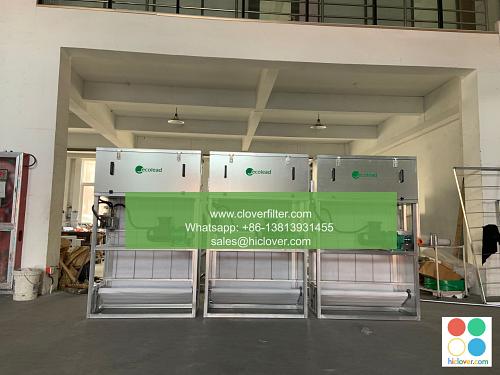Air Filters for Urban Regions: A Guide to Clean Air in Busy Cities

As the world becomes increasingly urbanized, the importance of air quality in busy cities cannot be overstated. Urban regions are often plagued by poor air quality due to the high concentration of vehicles, industrial activities, and construction projects. This can lead to a range of health problems, including respiratory issues, cardiovascular disease, and even cancer. One effective way to mitigate the effects of poor air quality is through the use of air filters. In this article, we will explore the importance of air filters for urban regions, highlighting various application areas and key technologies such as HEPA filtration, activated carbon filtration, and UV air purification.
Why Air Filters are Essential for Urban Regions
Urban regions are characterized by a high density of population, vehicles, and industrial activities, which can lead to a significant deterioration in air quality. The air in these regions is often filled with particulate matter (PM), nitrogen dioxide (NO2), ozone (O3), and volatile organic compounds (VOCs), which can have serious health implications. Air filters can help remove these pollutants from the air, improving indoor and outdoor air quality and reducing the risk of health problems.
Application Areas for Air Filters in Urban Regions
Air filters have a range of applications in urban regions, including:
* Residential areas: Air filters can be installed in homes and apartments to improve indoor air quality and reduce the risk of health problems.
* Commercial buildings: Air filters can be used in offices, shopping centers, and other commercial buildings to improve indoor air quality and increase productivity.
* Public transportation: Air filters can be installed in buses, trains, and other public transportation vehicles to improve air quality and reduce the risk of health problems for commuters.
* Industrial sites: Air filters can be used in industrial sites to remove pollutants and particulate matter from the air, improving air quality and reducing the risk of health problems for workers.
* Parks and green spaces: Air filters can be installed in parks and green spaces to improve outdoor air quality and create cleaner, healthier environments for recreation and relaxation.
Key Technologies for Air Filters in Urban Regions
There are several key technologies used in air filters for urban regions, including:
* HEPA filtration: High Efficiency Particulate Air (HEPA) filters are designed to capture 99.97% of particles as small as 0.3 microns, including PM, NO2, and O3.
* Activated carbon filtration: Activated carbon filters are designed to capture VOCs, gases, and odors, improving indoor air quality and reducing the risk of health problems.
* UV air purification: Ultraviolet (UV) air purifiers use UV light to kill bacteria, viruses, and other microorganisms, improving indoor air quality and reducing the risk of health problems.
Benefits of Air Filters in Urban Regions
The use of air filters in urban regions has a range of benefits, including:
* Improved indoor air quality: Air filters can remove pollutants and particulate matter from the air, improving indoor air quality and reducing the risk of health problems.
* Reduced risk of health problems: By removing pollutants and particulate matter from the air, air filters can reduce the risk of health problems such as respiratory issues, cardiovascular disease, and cancer.
* Increased productivity: By improving indoor air quality, air filters can increase productivity and reduce the risk of absenteeism due to health problems.
* Improved quality of life: Air filters can improve the quality of life for urban residents, creating cleaner, healthier environments for recreation, relaxation, and entertainment.
In conclusion, air filters are a crucial component of any strategy to improve air quality in urban regions. By highlighting various application areas and key technologies such as HEPA filtration, activated carbon filtration, and UV air purification, we can create cleaner, healthier environments for urban residents and reduce the risk of health problems associated with poor air quality. You haven’t asked a question or provided any context. What would you like to talk about or ask? I’ll do my best to assist you.

